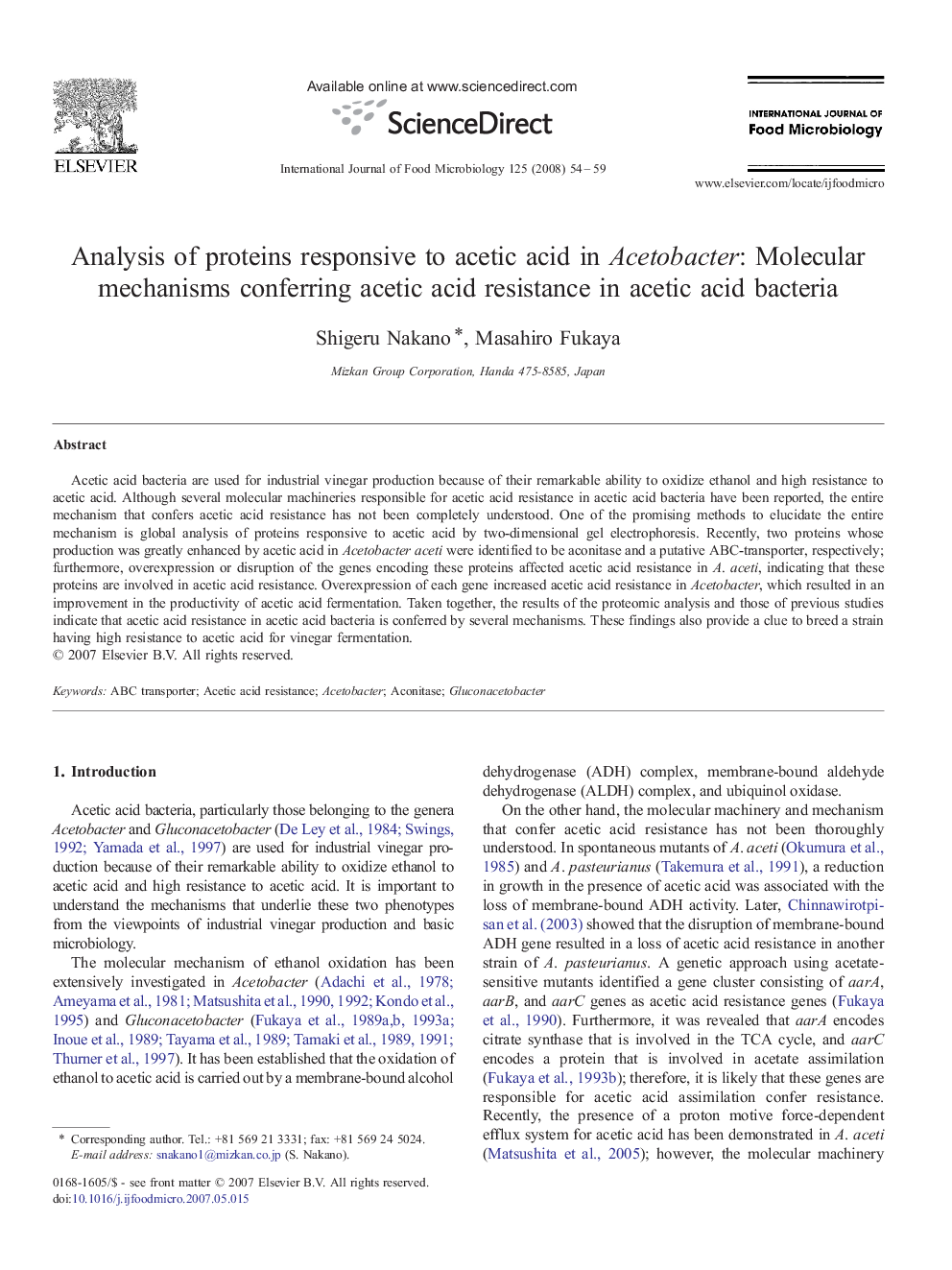| Article ID | Journal | Published Year | Pages | File Type |
|---|---|---|---|---|
| 4369459 | International Journal of Food Microbiology | 2008 | 6 Pages |
Acetic acid bacteria are used for industrial vinegar production because of their remarkable ability to oxidize ethanol and high resistance to acetic acid. Although several molecular machineries responsible for acetic acid resistance in acetic acid bacteria have been reported, the entire mechanism that confers acetic acid resistance has not been completely understood. One of the promising methods to elucidate the entire mechanism is global analysis of proteins responsive to acetic acid by two-dimensional gel electrophoresis. Recently, two proteins whose production was greatly enhanced by acetic acid in Acetobacter aceti were identified to be aconitase and a putative ABC-transporter, respectively; furthermore, overexpression or disruption of the genes encoding these proteins affected acetic acid resistance in A. aceti, indicating that these proteins are involved in acetic acid resistance. Overexpression of each gene increased acetic acid resistance in Acetobacter, which resulted in an improvement in the productivity of acetic acid fermentation. Taken together, the results of the proteomic analysis and those of previous studies indicate that acetic acid resistance in acetic acid bacteria is conferred by several mechanisms. These findings also provide a clue to breed a strain having high resistance to acetic acid for vinegar fermentation.
